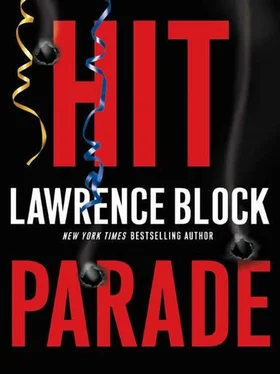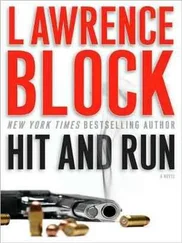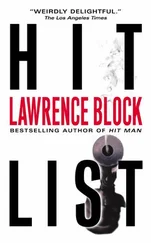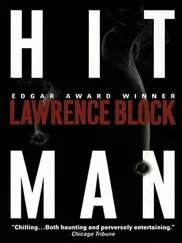Because he didn’t know how to play. He was ineffectual at guarding, and more obviously inept when someone tossed him the ball and he didn’t know what to do with it. “Shoot,” someone yelled, and he shot and missed. “Here, here!” someone called out, and his pass was intercepted. He just didn’t know what he was doing, and before long his teammates figured out as much and stopped passing him the ball.
After fifteen or twenty minutes the Shirts were a little more than halfway to the number of points that would end the game, when a boy a grade ahead of Keller showed up. “Hey, it’s Lassman,” Randy or Andy said. “Lassman, take over for Keller.”
And just like that, Lassman, suddenly shirtless, was in, and Keller was out. This, too, struck him as reasonable enough. He went to the sidelines and put his shirt on, relief and disappointment settling over him in equal parts. For a few minutes he stood there watching the others play, and relief faded while disappointment swelled. Well, I better be getting home now, he planned to say, and he rehearsed the line, rephrasing it in his mind, giving it different inflections. But nobody was paying any attention to him, so why say anything? He turned around and went home.
When his mother asked him about it, he said it had turned out okay, but he wouldn’t be going over there anymore. They had regular teams, he said, and he didn’t really fit in. She looked at him for a moment, then let it go.
A few days later he came home from school to see two workmen mounting a backboard and basket on the Keller garage. At dinner he wanted to ask her about it but didn’t know how to start. She didn’t say anything either at first, and years later, when he heard the expression “the elephant in the living room that nobody talks about,” he thought of that basketball backboard.
But then she did talk about it. “I thought it would be good to have,” she said. “You can go out there and practice anytime you want, and the other boys will see you there, and come over and play.”
She was half right. He practiced, dribbling, driving toward the basket, trying set shots and jump shots and hook shots from different angles. He paced off a foul line and practiced foul shots. If practice didn’t make perfect, it certainly didn’t hurt. He got better.
And the other boys saw him there, she was right about that, too. But nobody ever came over to play, and before long he stopped going out there himself. Then he got an afterschool job, and he put the basketball in the garage and forgot about it.
The backboard stayed where it was, securely mounted on the garage. It was the elephant in the driveway that nobody talked about.
The Pacers wonin overtime, in what Keller supposed was an exciting game, although it didn’t excite him much. He didn’t care who won, and found his attention drifting throughout, even at the game’s most crucial moments. The fact that the visiting team was the New York Knicks didn’t make any difference to him. He didn’t follow basketball, and his devotion to the city of New York didn’t make him a partisan follower of the city’s sports teams.
Except for the Yankees. He liked the Yankees, and enjoyed it when they won. But he didn’t eat his heart out when, on rare occasions, they lost. As far as he was concerned, getting upset over the outcome of a sports event was like getting depressed when a movie had a sad ending. I mean, get a grip, man. It’s only a movie, it’s only a ball game.
He walked to his car, which was where he’d parked it, and drove to his motel, which was where he’d left it. He was seventy-five dollars richer than he’d been a few hours ago, and his only regret was that he hadn’t thought to sell both tickets. And skip the game.
Grondahl had a backboardin his driveway.
That was the target’s name, Meredith Grondahl, and when Keller had first seen it, before Dot showed him the photograph, he’d supposed it was a woman. He’d even said, “A woman?” and Dot had asked him if he’d become a sexist overnight. “You’ve done women before,” she reminded him. “You’ve always been an equal-opportunity kind of guy. But all that’s beside the point, because this particular Meredith is a man.”
What, he’d wondered, did Meredith’s friends call him for short? Merry? Probably not, Keller decided. If he had a nickname, it was probably Bud or Mac or Bubba.
Grondahl, he figured, meant “green valley” in whatever Scandinavian language Meredith’s forebears had spoken. So maybe the guy’s friends called him Greenie.
Or maybe not.
The backboard, which Keller saw on a drive-by the morning after the basketball game, was freestanding, mounted on a post a couple of feet in front of the garage. It was a two-car garage, and the post was positioned so that it didn’t block access to either side.
The garage door was closed, so Keller couldn’t tell how many cars it held at the moment. Nor was anybody shooting baskets in the driveway. Keller drove off, picturing Grondahl playing a solitary game, dribbling, shooting, all the while considering how his testimony might expose corporate shenanigans, making of basketball a meditative experience.
You could get a lot of thinking done that way. Provided you were alone, and didn’t have to break your concentration by interacting with somebody else.
South and eastof downtown Indianapolis, tucked into a shopping mall, Keller found a stamp dealer named Hubert Haas. He’d done business with the man in the past, when he’d managed to outbid other collectors for lots Haas offered on eBay. So the name rang a bell when he came across it in the Yellow Pages.
He’d brought his Scott catalog, which he used as a checklist, so he could be sure he wasn’t buying stamps he already owned. Haas, a plump and owlish young man who looked as though his chief exercise consisted of driving past a health club, was happy to show Keller his stock. He did almost all of his business online, he confided, and hardly ever had a real customer in the shop, so this was a treat for him.
So why pay rent? Why not work out of his house?
“Buying,” Haas said. “I’ve got a presence in a high-traffic mall. That keeps the noncollectors aware of me. Uncle Fred dies, they inherit his stamp collection, who do they bring it to? Somebody they heard of, and they not only heard of Hubert Haas, they know he’s for real, because he’s got a store in the Glendale Mall to prove it. And then there’s the walk-in who buys a starter album for his kid, the collector who runs out of hinges or Showgard mounts or needs to replace a lost pair of tongs. Helps with the rent, but buying’s the real reason.”
Keller found a comforting quantity of stamps to buy from Haas, including an inexpensive but curiously elusive set of Venezuelan airmails. He walked out imbued with a sense of accomplishment, and took a few minutes to walk around the mall, to see what further accomplishments might be there for the taking.
The mall had the sort of stores malls usually had, and he found it easy enough to scan their window displays and walk on by. Until he came to the library.
Who had ever heard of a public library in a shopping mall? But that’s what this was, occupying substantial space on the second and third levels, and complete with a turnstile and, yes, a metals detector, its purpose unapparent to Keller. Was there a problem of folks toting guns in hollowed-out books?
No matter. Keller wasn’t carrying a gun, or anything metallic but a handful of coins and his car keys. He entered without raising any alarms, and ten minutes later he was scanning back issues of the Indianapolis Star , learning all manner of things about Meredith Grondahl.
Читать дальше












